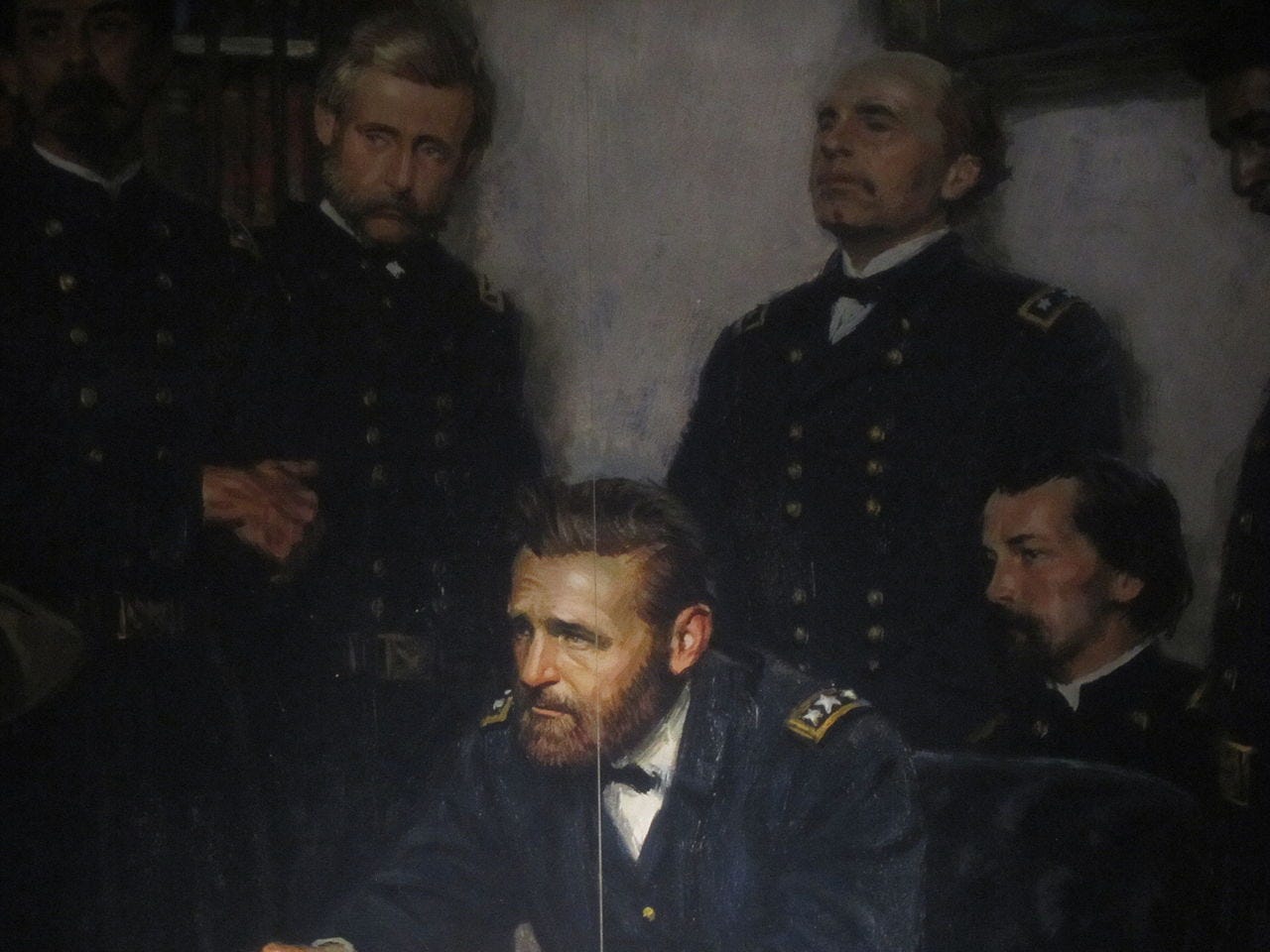Humility in Failure
Giving people room to fail with dignity
Previous post:

“If you are ferocious in battle, remember to be magnanimous in victory.” — Commander Tim Collins, 2003
On April 9, 1865 — one hundred fifty-six years ago today — General Robert E. Lee surrendered to General Ulysses S. Grant at Appomattox Court House, Virginia, ending the Civil War.
It didn’t simply mark the end of a bloody war; the leader humility each exhibited that day revealed their character.
In the days leading up to the surrender, Lee realized that his troops were in no position to continue the fight. Following the Battle of Sayler’s Creek — where, incidentally, my great-great-great grandfather captured Robert E. Lee’s son Custis Lee single-handedly — his army was reduced by twenty-five percent and was devoid of provisions.
Rather than face the unconditional surrender that Grant sought, one of General Lee’s officers suggested a guerilla war. Lee’s response was that of a mature leader, who understood the impact beyond himself:
“You and I as Christian men have no right to consider only how this would affect us. We must consider its effect on the country as a whole.”
And so, dressed in his finest gray uniform, Lee arrived at the home of Wilmer McLean to meet Grant and sign the official surrender document.
Then General Grant did something extraordinary that honored the dignity of Lee and his men.



